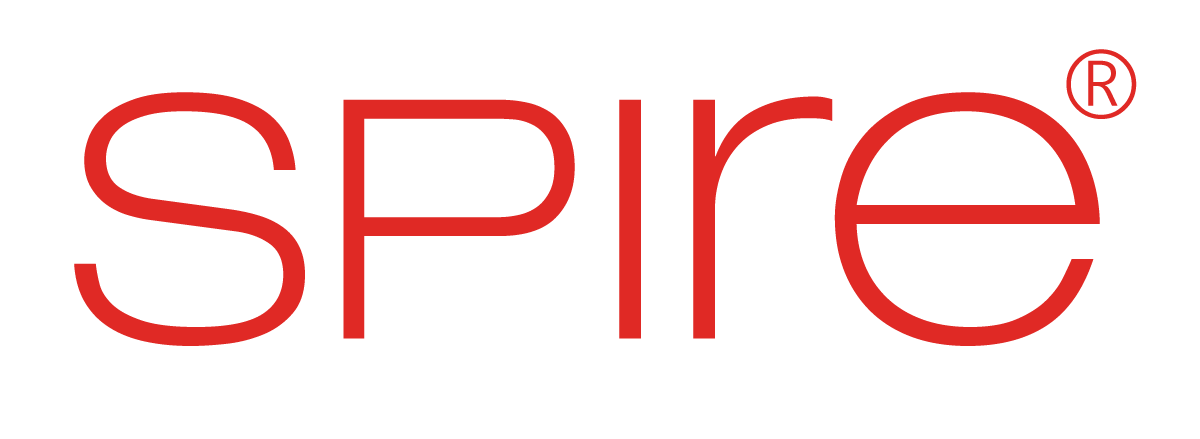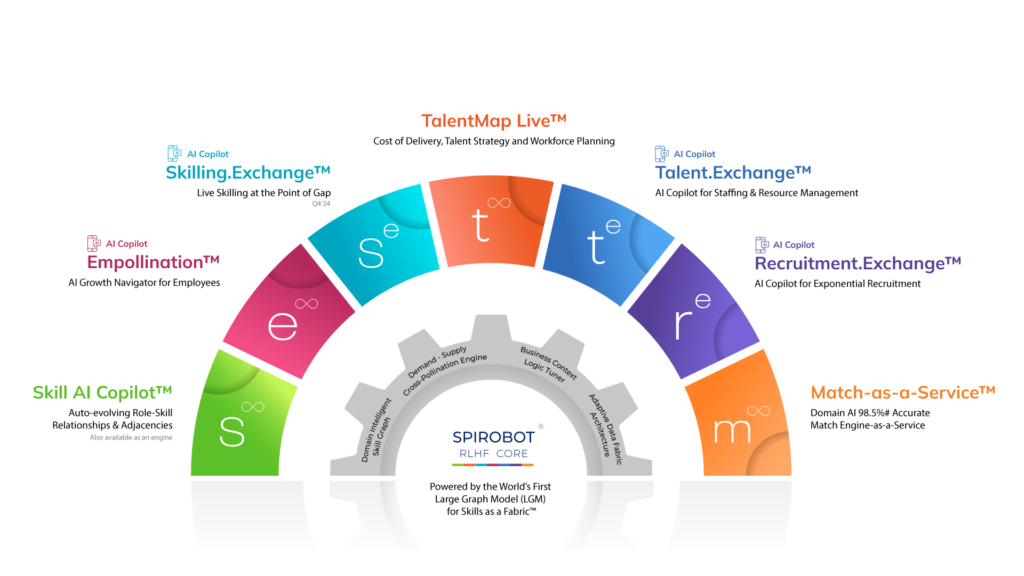With technological advancements ever-increasingly, the skills needed to succeed constantly evolve. This rapid change presents a significant challenge for organizations: ensuring their workforce possesses the right skill sets to keep up and thrive in this dynamic environment.
Further complicating this challenge is the issue of limited growth opportunities within many organizations. Traditional talent management systems often need help to keep pace with the evolving skill landscape, leaving employees feeling stuck and needing clear paths for upskilling and career development. This is where AI-based talent management comes in.
AI-based talent management is a comprehensive solution that utilizes artificial intelligence to automate and optimize various aspects of the talent management process. It offers organizations a robust strategy to build a skilled workforce, empower employee growth, and ultimately drive business growth. For employees, it means clear career paths, personalized development plans, and opportunities for growth and advancement.
A powerful tool emerges within AI-based talent management: AI career path simulation. This innovative approach uses AI algorithms to predict future skill gaps and create personalized employee career development plans. This blog will explore how AI career path simulation helps leaders achieve strategic alignment between talent and business goals.
AI in Talent Management: A Strategic Advantage
AI-based talent management is not just a tool but a strategic advantage for organizations. By providing data-driven insights and automation, it enables leaders to make more informed and strategic decisions about talent development, ultimately driving business growth.
How AI in Talent Management Benefits Organizations
– Identifying skill gaps
– Developing a skilled workforce
– Improving employee engagement
– Optimizing talent acquisition
Traditional talent management systems have relied heavily on manual processes and intuition. This approach often leads to a reactive strategy, needing help adapting to the skill landscape’s rapid changes. AI-based talent management offers a significant advantage by providing data-driven insights and automation, enabling organizations to take a more proactive and strategic approach to talent development. Here’s how AI in talent management benefits organizations:
Identifying skill gaps
AI can analyze vast amounts of data, including industry trends, job postings, and competitor analysis, to predict the skills that will be required in the future. This proactive approach allows HR professionals to identify potential skill gaps and develop plans to address them before they become critical issues, ensuring they are always one step ahead.
Developing a skilled workforce
Once skill gaps are identified, AI can be used to design targeted learning and development programs. AI can personalize these programs based on individual employee needs and skill sets, ensuring that employees receive the most relevant training to close skill gaps and develop the skills needed for future success.
Improving employee engagement
AI in talent management fosters a culture of learning and growth by providing employees with clear career development paths and opportunities for upskilling. This leads to a more engaged and motivated workforce, significantly improving productivity and innovation.
Optimizing talent acquisition
AI talent management can also improve talent acquisition efforts. By leveraging AI to identify the skills needed for open positions and match them with the skills of existing employees, organizations can reduce reliance on external hiring and promote internal mobility. This saves time and money and helps in diversity and inclusion efforts by providing opportunities for underrepresented groups within the organization.
AI Career Path Simulation: Aligning Talent with Strategy
AI career path simulation is a powerful tool within the AI talent management suite. It takes talent development a step further by using AI algorithms to model different career paths for employees based on their skills, interests, and the organization’s growth. This allows organizations to achieve a deeper strategic alignment between their talent and business goals. Here’s how AI career path simulation benefits organizations:
How AI career path simulation benefits organizations
– Predicting future skill needs
– Developing targeted reskilling programs
– Improving talent mobility
- Predicting future skill needs: By simulating different scenarios, AI can identify potential skill gaps and predict the specific skills that will be most in demand based on future business goals and strategic initiatives. This allows organizations to develop targeted reskilling programs well in advance, ensuring their workforce is prepared for the challenges and opportunities.
- Developing targeted reskilling programs: AI can recommend specific learning paths and training programs for individual employees based on the simulations. These personalized recommendations ensure that employees acquire the exact skills needed to succeed in their future roles, maximizing the return on investment in training and development initiatives.
- Improving talent mobility: AI career path simulation can identify employees who have the potential to move into new roles, even if those roles don’t currently exist within the organization. This allows organizations to develop internal talent pipelines and promote internal mobility. This reduces reliance on external hiring and fosters a career development and growth culture within the organization, leading to a more engaged and loyal workforce.
By leveraging AI career path simulation, organizations can proactively manage their talent pool, ensuring they have the right skills to achieve their strategic objectives. This strategic alignment between talent and business goals creates a win-win situation for employees and organizations. Employees feel empowered to develop their skills and pursue career growth, while organizations gain a future-proof workforce equipped to achieve sustainable success in the ever-changing business landscape.
However, implementing a successful AI talent management strategy requires more than technology. Here are some critical considerations for organizations looking to leverage AI for talent development:
- Data quality: The effectiveness of AI algorithms heavily depends on the data quality on which they are trained. Organizations must ensure they have access to clean, accurate, and up-to-date data on employee skills, job requirements, and industry trends.
- Change management: Introducing AI into talent management can be a significant change for employees and managers. A comprehensive change management strategy is crucial to address concerns and ensure user adoption of the new tools and processes.
- Transparency and communication: Employees need to understand how AI is being used to manage their careers and development. Organizations should be transparent about the data used and how AI recommendations are generated.
Spire.AI Solutions: Empowering Organizations with AI-Based Talent Management
Spire.AI offers a comprehensive suite of AI-powered talent management solutions that address the challenges outlined above and empower organizations to unlock the full potential of AI career path simulation. Here’s a closer look at how Spire.AI helps:
- Auto-Evolving Role-Skill Framework: This AI-powered framework goes beyond static job descriptions. It utilizes a Large Graph Model (LGM) to automatically identify the complex skill mixes needed for every role at various levels (base, enhanced, expert). This framework is a source of truth for skills data, ensuring alignment between talent development and business strategy.
- AI-generated Employee Skill Profiles: Spire.AI utilizes AI to analyze data from various sources, including resumes, performance reviews, and internal learning platforms. This eliminates manual data entry and provides a comprehensive picture of the organization’s existing skills. With over 83% of employee profiles automatically generated with minimal input, Spire.AI significantly reduces the time and resources needed to build a robust skills database.
- Career Path Simulation and Reskilling Recommendations: Based on employee profiles, aspirations, and business goals, Spire.AI recommends personalized career paths and reskilling opportunities. This empowers employees to take ownership of their professional development and aligns individual growth with the organization’s strategic direction.
- Talent Marketplace: Spire.AI facilitates internal mobility through an AI-powered talent marketplace. This platform connects employees with relevant internal opportunities, fostering a culture of growth and development. Organizations can significantly reduce reliance on external hiring and associated costs by increasing internal mobility from 21% to 56% (as demonstrated by Spire.AI).
With over 83% of employee profiles automatically generated with minimal input, Spire.AI significantly reduces the time and resources needed to build a robust skills database.
Leveraging Spire.AI’s suite of solutions can give organizations a significant competitive advantage. Through a data-driven and personalized approach to talent management, they can build a future-ready workforce, improve employee engagement, and achieve their strategic goals.
Final Thoughts
In conclusion, AI-based talent management is revolutionizing how organizations develop and manage their workforce with AI career path simulation at its core. By aligning talent strategy with business goals, organizations can unlock the full potential of their employees and achieve sustainable growth in today’s dynamic business landscape. However, successful implementation requires careful consideration of data quality, change management, and employee communication. Spire.AI offers a comprehensive solution that addresses these challenges and empowers organizations to leverage the power of AI to build a skilled, engaged, and future-proof workforce.
Frequently Asked Questions
How is AI used in talent management?
AI is used in talent management for tasks like candidate sourcing, resume screening, performance evaluation, employee engagement analysis, and talent development recommendations.
How is AI used in talent retention?
AI can predict employee turnover by analyzing data on employee satisfaction, engagement, and performance. It can also recommend retention strategies based on these insights.
What is AI-based recruitment?
AI-based recruitment uses AI technologies to automate tasks like resume screening, candidate sourcing, and scheduling interviews. It can also provide insights into candidate quality and diversity.






